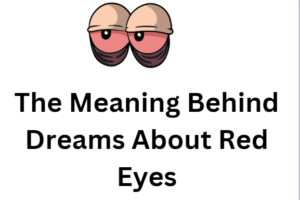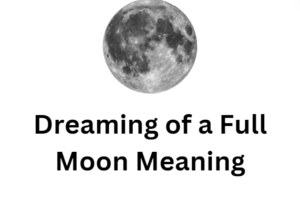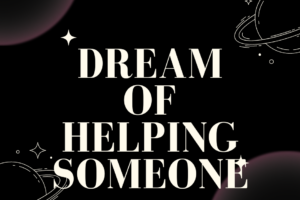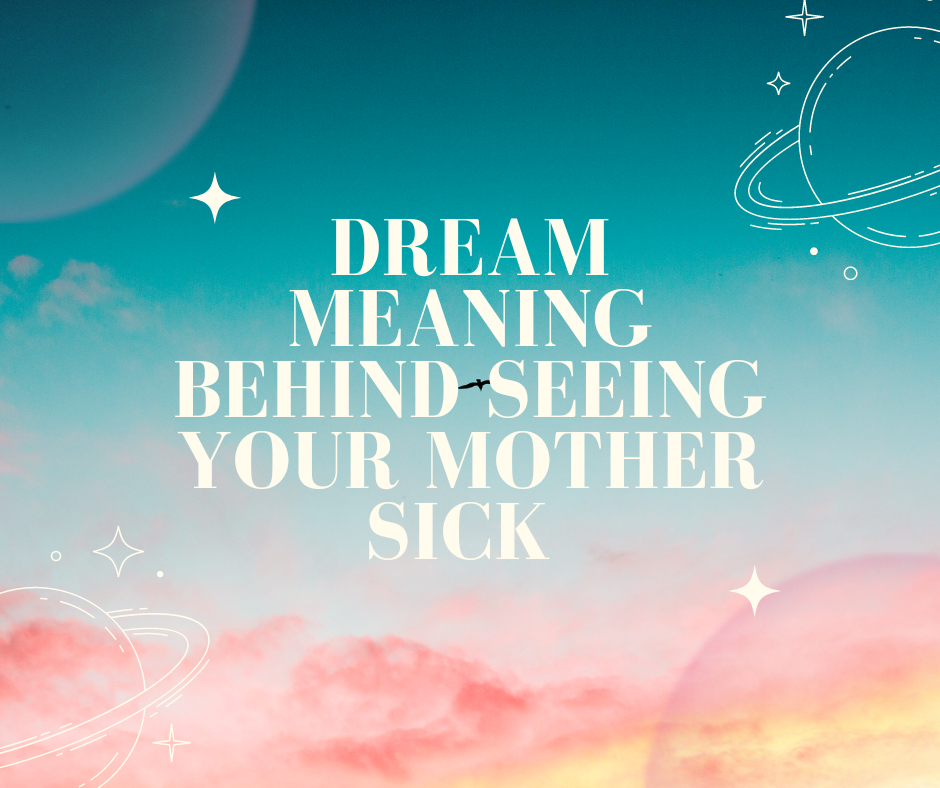The Meaning Behind Dreams About Red Eyes

Dreams About Red Eyes :Dreaming about someone with red eyes can be an unsettling experience. However, like all dreams, they hold symbolic meaning and offer an opportunity for self-exploration and growth. By analyzing this dream symbol, we can uncover the message our subconscious is trying to convey.
Common Interpretations of Dreams about Red Eyes
There are a few common interpretations of what it means to dream about red eyes:
- Anger – Red is associated with intense emotions like anger and rage. A red-eyed dream figure may represent suppressed anger either toward yourself or someone in your waking life. Pay attention to who in the dream has red eyes to explore this further.
- Passion – Red can also symbolize passion, lust or intimacy. Red eyes in a romantic partner in your dream may signify a passionate connection or indicate a desire for more romance.
- Lack of sleep – Literal red eyes or bloodshot eyes can signal fatigue or lack of sleep in real life. Your dream may be telling you that you need to catch up on rest.
- Evil – In some cultures, red eyes symbolize demons, vampires or the devil. It can represent evil influences or feeling threatened by someone in your life.
- Health problems – Bloodshot eyes may reflect concerns about your health or being overly tired, stressed and overworked. Your subconscious may be signaling that something in your life feels unhealthy.
- Perception – A dream where your own eyes or vision appear red symbolizes how you are perceiving a situation. It means you are stuck in a “red lens” viewpoint of anger, lust or fear rather than seeing things objectively.
When Red Eyes Are on a Specific Dream Figure
The identity of the red-eyed dream figure provides further interpretation:
- A stranger with red eyes signifies suppressed aspects of yourself or fears about the unknown.
- A loved one with red eyes may indicate relationship problems or concern for their wellbeing.
- Red eyes on an authority figure reveals issues with how you perceive their power over you.
- An ex-lover with red eyes points to unresolved passion or sexual tension.
- Red eyes on a close friend/family member may show a clash between you or concern for their health and happiness.
- Having red eyes yourself in a dream indicates that the way you are perceiving or reacting to a situation needs to shift.
Men vs Women and Red Eyes
- For men, a woman with red eyes may link to fears about romantic entanglements or worry about sexual urges and satisfaction.
- For a woman, a man with red eyes can represent a lover who seems dangerous or aggressive. This could signify a need for self-protection in intimate relationships.
Being Attacked by Red Eyes
- Being threatened or attacked by someone with red eyes symbolizes profound fears making themselves known. Your subconscious is exposing inner vulnerabilities, anxieties and lack of control in your waking life.
- Being attacked by an animal with red eyes can symbolize primal instincts coming to the surface. Your shadow self may be trying to break through, or you may be grappling with fears related to violence, death or sexuality.
How to Interpret the Dream Message
Start by looking at who in the dream has red eyes and in what context. Ask what qualities and feelings the color red and the dream figure represent to you personally. Look inward to uncover any unresolved issues that may be surfacing related to anger, physical health, intimate relationships or how you perceive situations. Examine areas in your waking life where you feel threatened or out of control. The dream provides an opportunity to heal and integrate suppressed emotions for a more balanced life.
Conclusion
In the end, dreams of red eyes are an invitation to look inward. By uncovering the symbolic meaning, you can achieve enlightenment into your innermost thoughts and feelings. Ultimately, this dream symbol asks you to examine how to better care for yourself, express your needs authentically, and view circumstances from a place of empowerment rather than fear. With self-understanding and compassion, you’ll find healthy ways to process and integrate the message from your subconscious for emotional and spiritual growth.
Read also
Dreaming of Voodoo – What Could it Mean?
Dream of Helping Someone: What Does it?
Dreaming of a Full Moon Meaning What Does It Symbolize?
Quantum Leap Spiritual Meaning: The Quantum Way to Awakening








